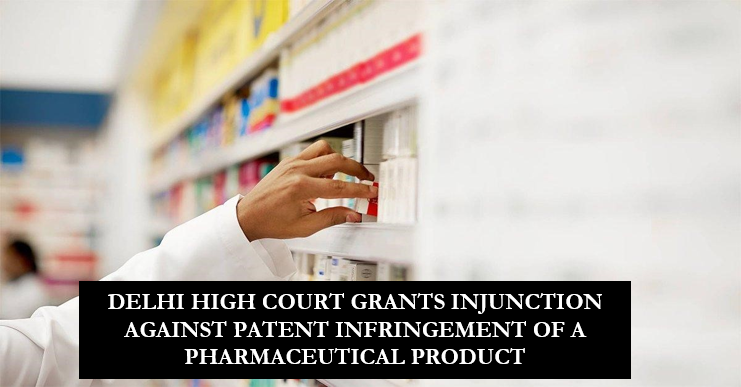DELHI HIGH COURT GRANTS INJUNCTION AGAINST PATENT INFRINGEMENT OF A PHARMACEUTICAL PRODUCT
The #DelhiHighCourt Single Judge Bench comprising J. C. Hari Shankar, has recently passed a #Judgment dated 07-07-2021 in FMC Corporation & Anr vs Best Crop Science LLP & Anr and granted #injunction against #infringement of the Plaintiff’s registered #patent.
In this case, the Plaintiff, FMC Corporation, asserted that it has obtained patent relating to a product, namely, Chlorantraniliprole (also known as “CTPR”) (Patented Product) and the process for the preparation thereof (Patented Process). The Plaintiff asserted that the compounds in the Patented Product are first of a kind, novel insecticides. CTPR has also been registered with the Central Insecticides Board in India. Further, the Plaintiff claimed to have obtained Patent for this Product and Process in several countries including India. Hence, the Plaintiff claimed exclusive rights to manufacture, use, market or sell CTPR in India and that a third party cannot manufacture, sell or distribute CTPR in India without a valid license from the Plaintiff.
However, when the Plaintiff found out that the Defendants, Natco Pharma Ltd and Best Crop Science LLP, have been manufacturing and releasing CTPR products in the market with few changes in the composition, without obtaining any license from the Plaintiff for the same in 2019, the Plaintiff filed various suits under Order 39 of CPC before the Delhi High Court seeking interim injunction against infringement of Patent by the Defendants. Further, the Defendant has also applied for patent of CTPR products claiming that the composition of the product is distinct from the Plaintiff’s CTPR products.
The Delhi High Court made the following observations in this case:
1) Section 2 (l) of the Patents Act 1970 defines “new invention” as any invention or technology which has not been anticipated by publication in any document or used in the country or elsewhere in the world before the date of filing of patent application with complete specification, i.e., the subject matter has not fallen in public domain or that it does not form part of the state of the art.
2) That an invention would not be deemed to be new if it was publicly known or publicly used/ published before the patent claim, under Section 64 (1) (e) of the Patents Act 1970.
3) That in this case, the Defendant has merely substituted certain compositions in the CTPR products, which is not sufficient to claim novelty in its products and distinction from Plaintiff’s CTPR products.
4) Moreover, the CTPR was already disclosed and published in the Plaintiff’s Patent case, i.e. long before the Defendant made a claim for patent.
Thus, based on the aforesaid observations, the Delhi High Court held that the Plaintiff is entitled to protection from infringement of its registered Patent. Hence, the High Court issued directions to the Defendants thereby restraining them from using the Patented Process and from manufacturing, using, selling, distributing, advertising, exporting, offering for sale or dealing in the Patented Product.
Harini Daliparthy
Senior Legal Associate
The Indian Lawyer





































Leave a Reply